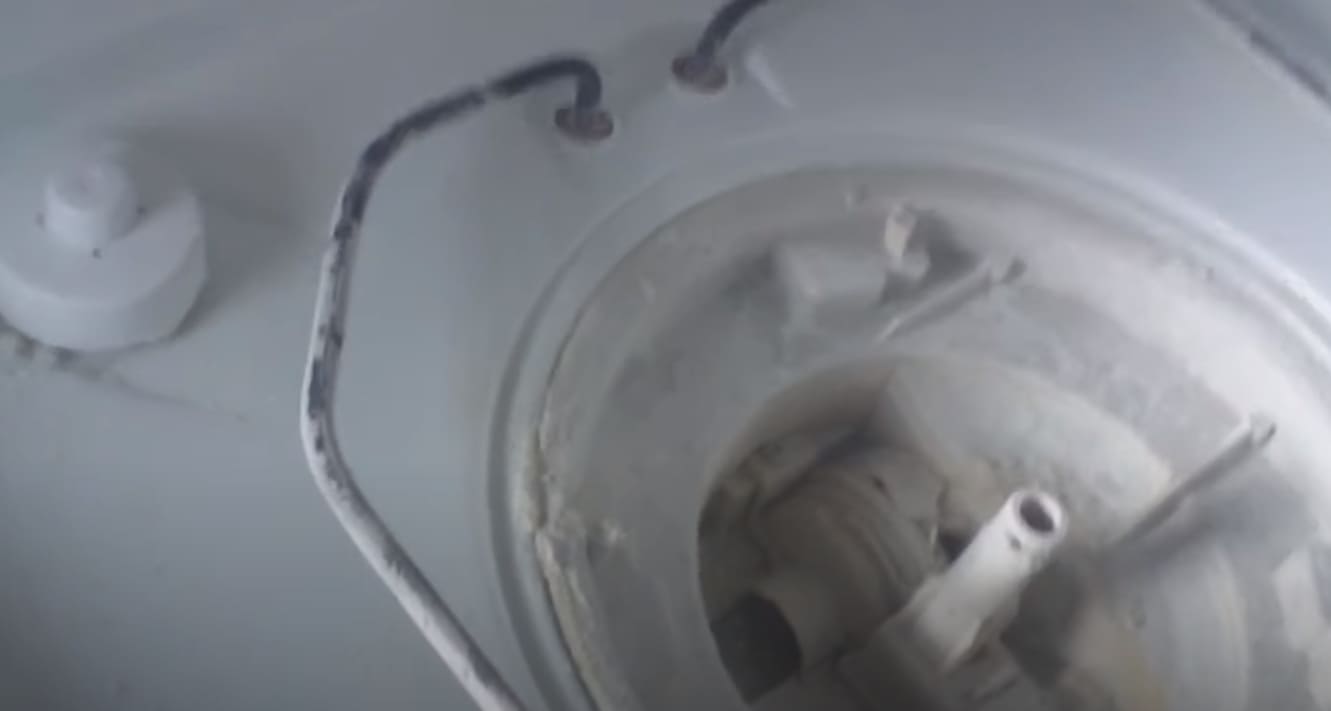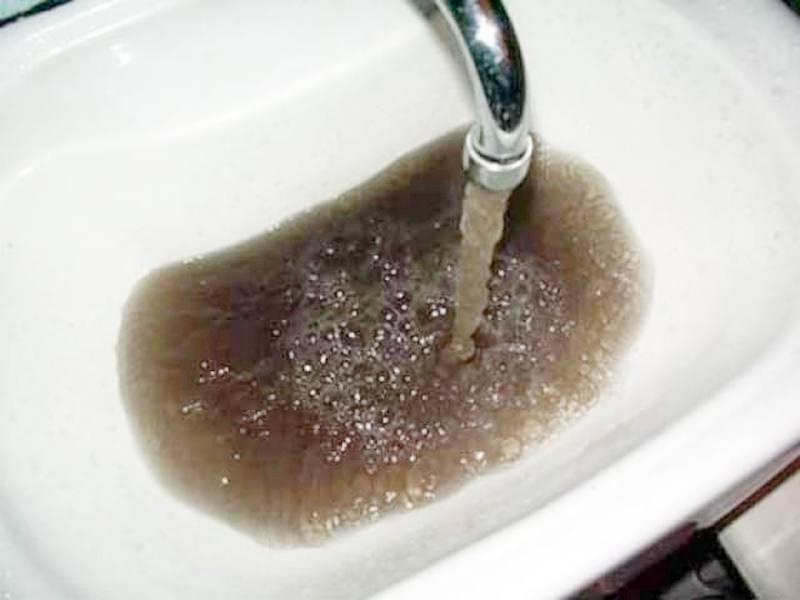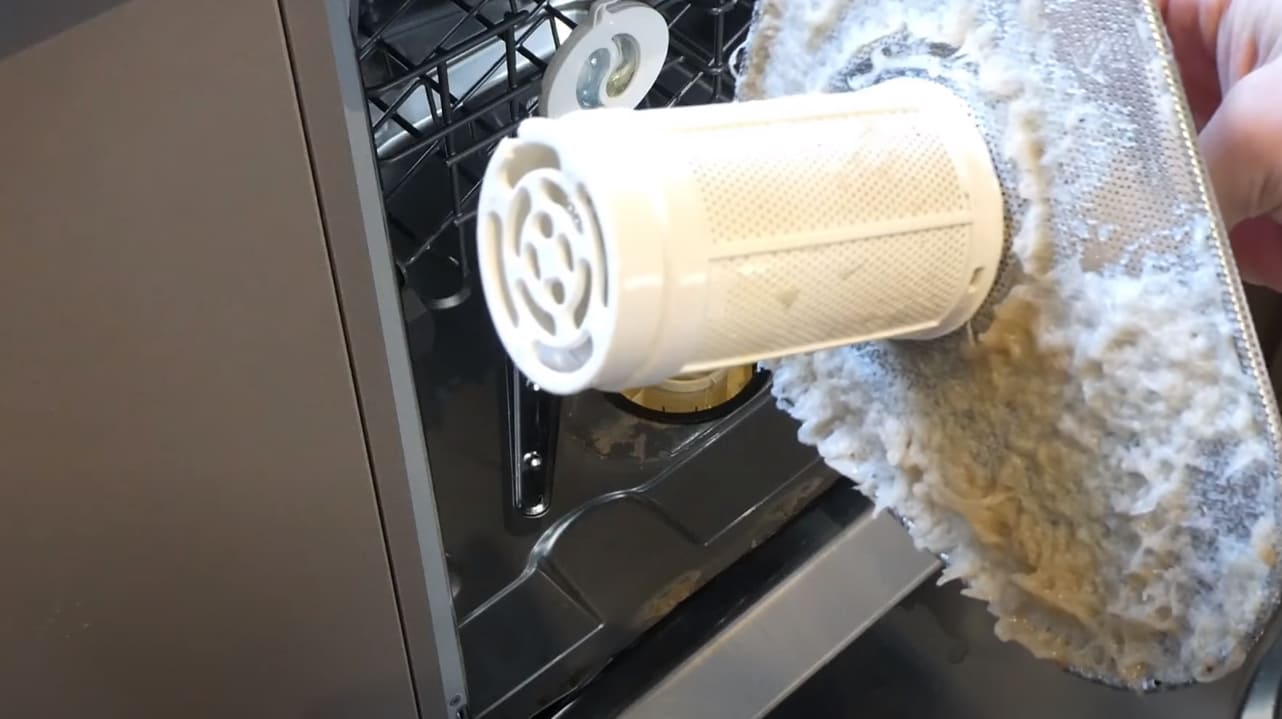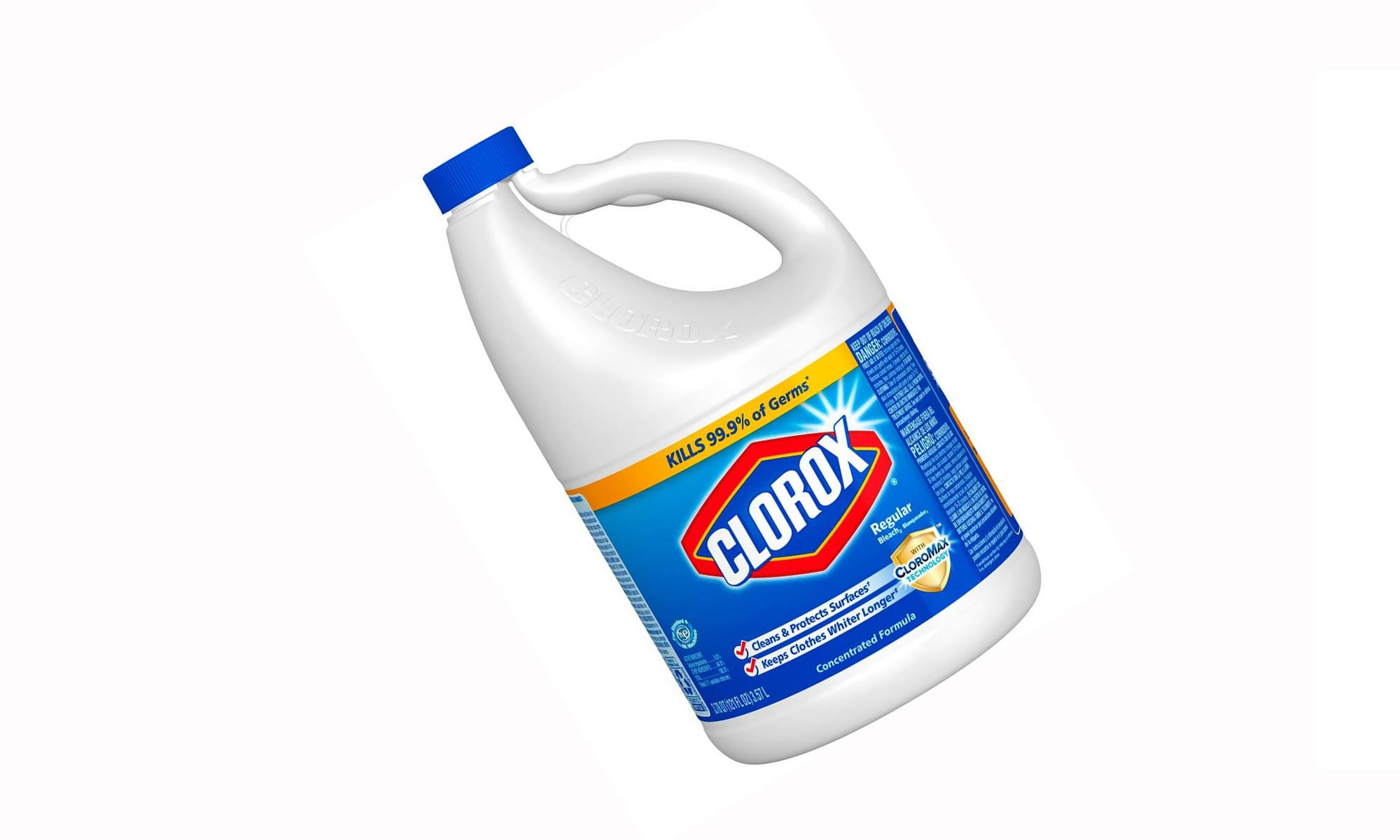
It is not uncommon for a dishwasher to smell unpleasant after a certain period of use. The reason for its appearance may be:
- poor drainage or incorrect connection of the dishwasher;
- poor quality tap water;
- accumulation of food residues on the filter;
- lack of regular cleaning of the dishwasher for a long time.
The odor may differ depending on the nature of the contamination, but in all cases, if unpleasant odors appear inside the dishwasher, it must be cleaned to eliminate the source of germs and unpleasant odors.
Contaminated water
Often, owners don’t pay much attention to what kind of water gets into the machine from the sink. When dirty water gets into the unit, the smell of sulfur or a rotten egg is soon formed. The anaerobic bacteria that produce this odor live inside the sewer. They get into the dishwasher due to an incorrect connection of the dishwasher drain.
Dirty filter
If the dishwasher smells like sewage, then the filter is dirty. During operation, small food particles accumulate in the filter or slots of the machine and start to smell.
In addition, they prevent the free flow of water. If the filter channel is blocked, the dishwashing water smells like pond water.
Limescale build-up from hard water
Hard water in the tap water will cause limescale to build up in many parts of the dishwasher. Hard water contains a large amount of minerals, usually calcium and magnesium carbonates from limestone.

These minerals are safe for humans, but have a detrimental effect on the machine. As limescale builds up over time, limescale deposits can stick together in various parts of the dishwasher, including the heating element. A large amount of deposits promotes the development of bacteria, which causes an unpleasant odor in the car.
Drain hose installed incorrectly
When installing your dishwasher, it is important to make sure that every part is installed correctly. If the drain hose is not properly installed, it can give rise to a sulfur smell.
Errors when connecting the drain hose are as follows:
connecting the hose to the drain pipe after the siphon does not provide protection against sewage gases.
incorrect block overlap due to the absence of a high loop, which prevents backwash from the sink drain, collecting inside the hose and rotting.
Why does the Bosch dishwasher smell like a wet dog?
When it smells like a wet dog from the dishwasher, the reason is slightly contaminated water that may have entered the unit. Also, the cause of such an unpleasant smell can be food debris trapped in the machine, stagnant or waste water that has remained inside it and has died out. Household appliances with this odor cannot be used to wash dishes. It will be necessary to eliminate such an unpleasant “odor”.
How to get rid of wet dog smell
After completing the full cycle, add a little chlorine bleach to the tub under the dishwasher rack. Then cover the dishwasher and wait an hour before removing the dishes. Chlorine will kill germs and the unpleasant odor of a wet dog.
How to remove odor from a dishwasher
The dishwasher can smell the dishes during the drying cycle. If the machine is not cleaned properly, the smell will not go away. The smell is a product of the vital activity of bacteria, and this is dangerous to human health.
To quickly return your dishwasher to good condition and get rid of the unpleasant odor, you need to:
- Clean the filter regularly to get rid of the odor in the dishwasher. To do this, use a stiff brush, soap and hot water. The filter is removed from the machine, cleaned and put back.
- Clean the machine regularly. To do this, mix baking soda, dish detergent and water. Use the mixture to thoroughly wipe the inside of the dishwasher. Cleaning should be done on gaskets, shelves and machine walls.
Then rinse the dishwasher thoroughly to dispose of the mixture by running an empty cycle at the highest available temperature. - Conduct prevention. Be sure to rinse the dishes before placing them in the dishwasher. Prevent small food particles from entering the dishwasher. Remove all leftover food from the dishes before placing them in the appliance.
- Carry out periodic cleaning of the dishwasher. Clean the filter and the inside of the machine regularly. This ensures that there are no food particles left inside that could accumulate and cause odors in the future.
- Do not turn on the tap when the machine is full of water. This is to prevent water from leaking out of the washing machine when filling. The danger is that after the water has been drained off, food residues get stuck in the gaps of the machine due to the lack of water required during the working cycle.
- Use water softeners.
Check your water softener regularly. Using this iron remover can help minimize or eliminate dishwasher odor. - Carry out preventive measures.
You can also remove odors from the dishwasher by using the distilled white vinegar cleaning cycle in the dishwasher compartment. Then the unit must be treated with a special rinse aid.
Regular cleaning of the dishwasher and adherence to the instructions for its use will not only avoid the appearance of unpleasant odors in the kitchen, but also eliminate the risk of contracting dangerous diseases that cause anaerobic bacteria that multiply in confined spaces and in humid environments. You should also avoid loading dishes into the machine with food leftovers, which will accumulate inside and create a favorable environment for dangerous microorganisms.
Regular cleaning of the dishwasher and the use of water softeners will ensure good dishwashing and no unpleasant odors inside the unit.



